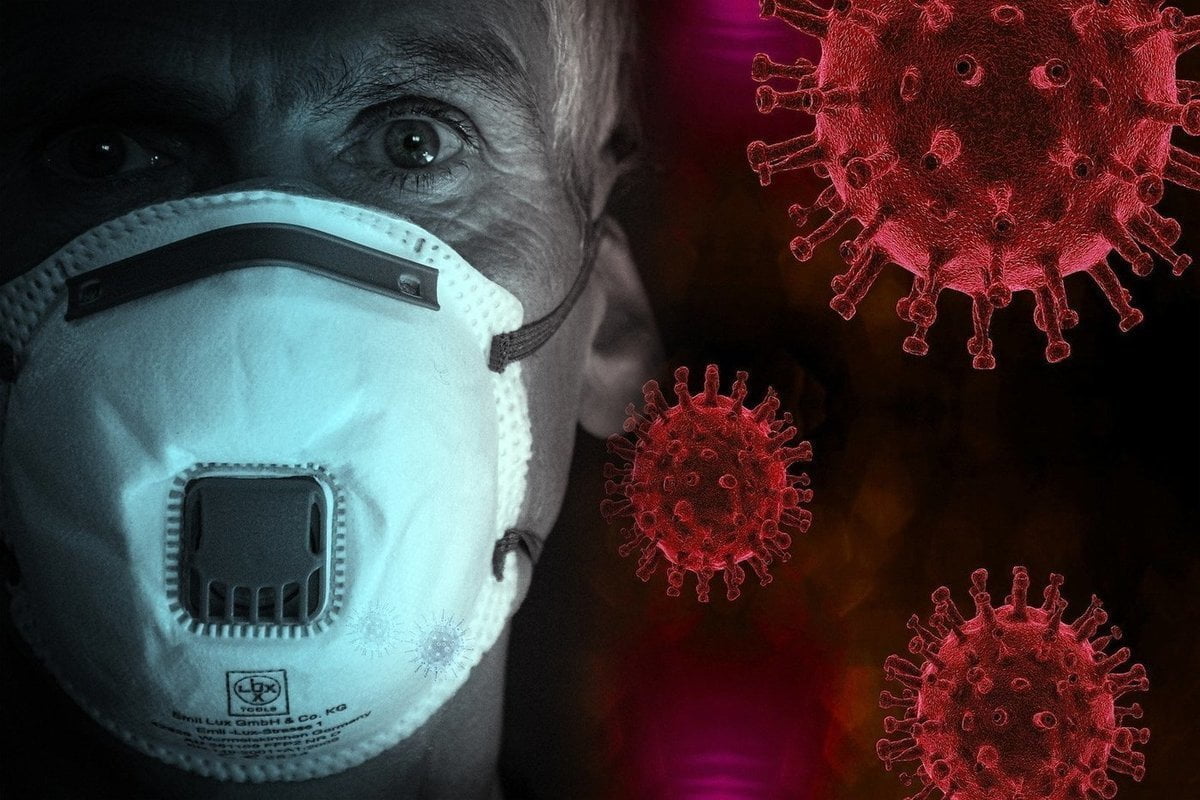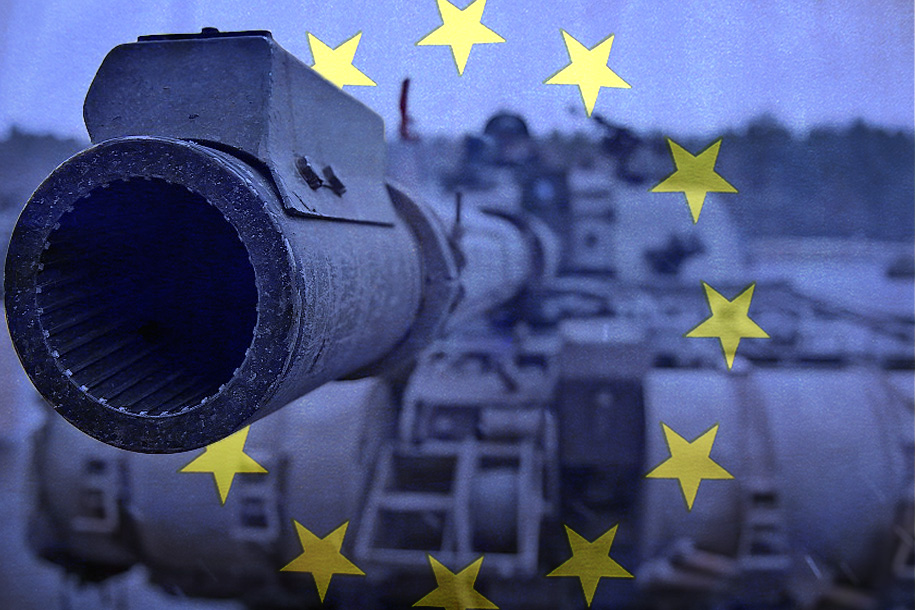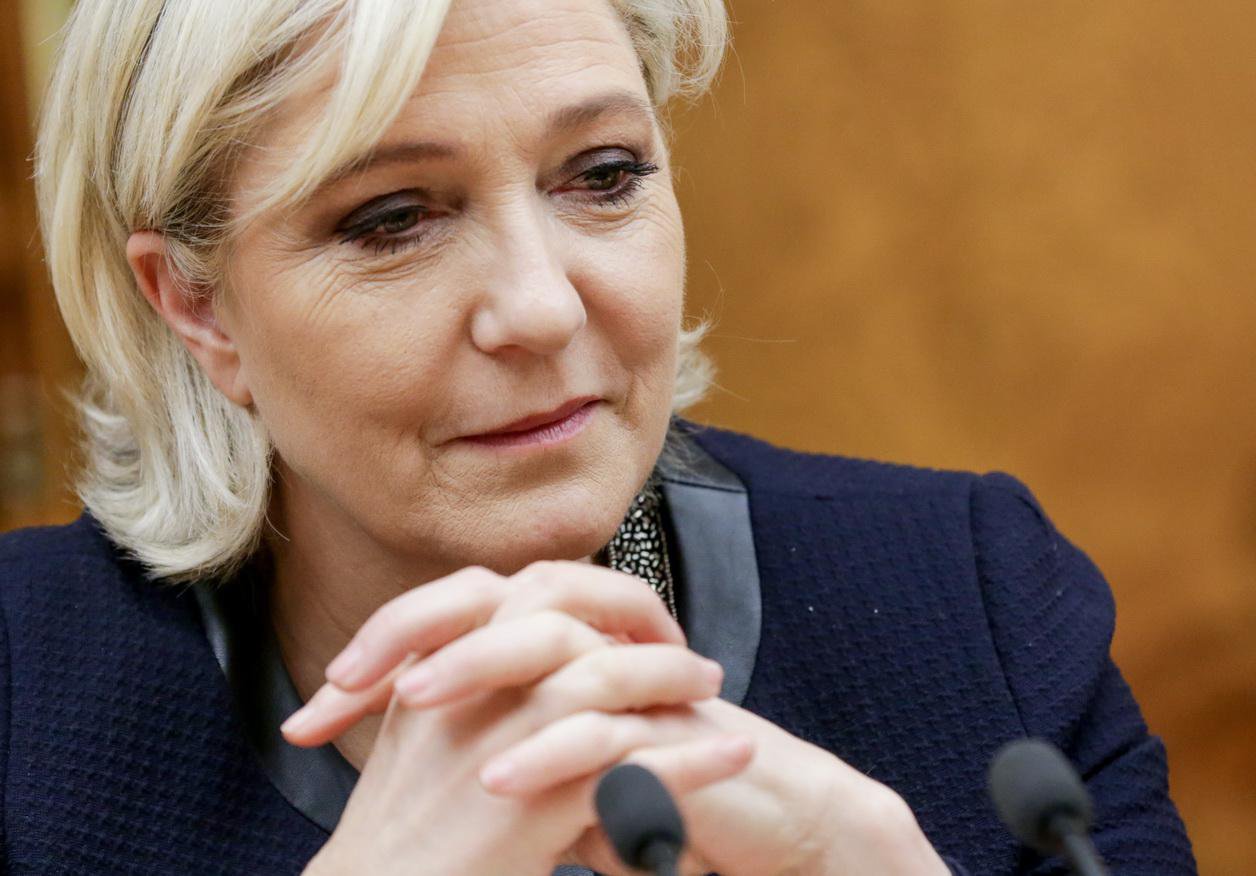A second wave of COVID-19 is ravaging Europe. This was not inevitable, but a deadly consequence of governments prioritising the wealth of the capitalists over the health of the population. Make the bosses pay to protect lives and livelihoods!
Europe is in the middle of a deadly second wave of the COVID-19 pandemic. This new wave of infections now accounts for half of all daily COVID-19 deaths worldwide and the figure is already higher than during the first wave in the spring (7,842 on 10 November now as compared to 6,825 in April).
Lockdowns, curfews, closure of bars and restaurants, circuit-breakers, local confinement – country after country is forced to take ever-more-severe measures to respond to the exponential growth of the pandemic, which in many countries is out of control, with ICU beds at full capacity. Yet, this second wave could have been avoided, or at least its consequences managed. The reason we are here is a combination of factors, all of which point to one overriding factor: the prioritisation of capitalist profits over the protection of life.
The reaction of capitalist governments in Europe to the first wave of COVID-19 was late and insufficient. Even when Italy was showing other countries their own future two weeks in advance, governments in Spain, the UK, France and elsewhere refused to take the necessary measures. They did not want to introduce lockdowns as they would negatively impact the economy; that is, the continued ability of capitalists to make profits. That decision cost lives. Tens of thousands of deaths could have been avoided if sharp, science-based measures had been taken early on. Health systems (in many cases already weakened by decades of austerity) crumbled faced with the exponential growth of infection rates, the number of people admitted to hospital, and the number of patients needing ICU beds with mechanical ventilators.
By June, the majority of European countries had managed to control the pandemic. Healthcare workers and others pulled their weight in a concerted effort. Citizens observed lockdown measures, even though these never reached the necessary level of a complete shut-down of the economy. People were told to stay indoors, while at the same time they were being forced to go to work in non-essential sectors of the economy, particularly in manufacturing and construction, using overcrowded public transport. All in the name of capitalist profits. Nevertheless, there was a substantial reduction in social contact and that brought the pandemic under control.
During that period of time, governments everywhere threw money at the economy, taking over the payment of wages in the private sector through different schemes and bailing out private companies, big and small. They wanted to soften the blow of the economic recession for fear of social unrest, in the hope that this was going to be a short episode.
Opening up under pressure from capitalist businesses
 As the images of overrun hospitals started to fade from the news reports, the pressure of the capitalists was brought to bear with full force again on their governments, which in turn were also keen to put an end to economic relief measures. The tourist industry played a key role in this. Countries like Spain, Greece and Italy were in a hurry to go back to normal and open up for tourists. Instead of a step-by-step lifting of measures, restricting social contact, what we saw was a mad dash to reopen the economy. Spain, Greece, France, Slovenia and others put pressure on the UK to lift travel restrictions and keep them off the quarantine list. This was at a time when the UK was still registering over 200 deaths a day, a figure much worse than that of the tourist destinations.
As the images of overrun hospitals started to fade from the news reports, the pressure of the capitalists was brought to bear with full force again on their governments, which in turn were also keen to put an end to economic relief measures. The tourist industry played a key role in this. Countries like Spain, Greece and Italy were in a hurry to go back to normal and open up for tourists. Instead of a step-by-step lifting of measures, restricting social contact, what we saw was a mad dash to reopen the economy. Spain, Greece, France, Slovenia and others put pressure on the UK to lift travel restrictions and keep them off the quarantine list. This was at a time when the UK was still registering over 200 deaths a day, a figure much worse than that of the tourist destinations.
Social distancing measures were lifted without putting in place a serious test, trace and isolate system. This was a crucial question. After the pandemic was under control, it would have been necessary to contain local outbreaks. That would have meant targeted mass testing and a serious system of contact tracing for those infected. While all countries eventually increased the number of people tested, the system was riddled with deficiencies and nowhere was really accompanied by a serious operation to track contacts.
England is a particularly bad example in this respect. After being promised a “world-beating” system, we ended up with one that cannot cope with increased demand, where only 60 percent of those tested in-person get their results within 24 hours, and which is only able to contact less than 60 percent of people identified as having been in touch with those who have tested positive. Why is this the case? A major factor is that the test and trace system has been awarded to a private company, instead of resources being given to local health authorities. Another is the general crisis of British capitalism to a point where, eight weeks from Brexit, companies do not yet know what the situation is going to be on 1 January.
This meant that localised outbreaks were not brought under control. Let’s give two examples of the consequences of this. Scientists have now determined that a large part of Europe’s second wave comes down to a particular strand of the virus (20A.EU1), which mutated in Spain at the beginning of the summer. The study showed how the new variant accounts for more than 80 percent of cases in the UK and Spain, 60 percent in Ireland and up to 40 percent in Switzerland and France, but has been identified in many other countries, as far away as Latvia and Norway. The majority of European countries did not have, and still do not have, proper screening and testing of passengers at airports. It is considered too costly to implement and too damaging for the tourist industry and airlines.
The study goes further and advances the hypothesis that the variant strand originated in Lleida and Aragon, in Spain, and that temporary migrant agricultural workers were its cultivation field. Why? Migrant agricultural workers flock to these regions in the summer, where they are exploited as a source of cheap labour, and are forced to live in unsanitary conditions, in overcrowded accommodation or sometimes sleeping outdoors or in sheds in the fields. A serious public health approach would have meant mass testing and providing them with decent accommodation. Under the system of capitalist profiteering, this did not occur. The same areas that have large concentrations of migrant seasonal agricultural workers had been hit by COVID-19 outbreaks coming from these region’s meat industries. Meat plants have been a focus of infection throughout the pandemic all over the world. The fact that workers toil in packed factories, in low temperatures and in noisy environments (forcing them to shout in order to communicate) are all factors conducive to the spread of the infection.
If meat-processing plants are considered as an essential sector of the economy that should stay open, then proper health-and-safety conditions should have been guaranteed. PPE equipment should have been provided for all workers, along with regular testing, and full wages for those infected and forced to self-isolate, in addition to those with whom they had been in contact with, so that they too could isolate. But under capitalism, none of these obvious public health measures were taken.
And so, the virus spread back from the fields of Lleida and Huesca, in Spain, to the whole of Europe, fueling the second wave.
Another instance of localised outbreaks, which could have been averted or controlled is the situation in Leicester, England, at the beginning of the summer. A large number of cases were detected and this was the first place to go into a second lockdown, of sorts. The source? Leicester’s hundreds of textile factories, where large numbers of workers, many of them born outside the UK, work in overcrowded conditions, for pittance wages (sometimes even below the minimum wage) and with no protective equipment. Some of these factories, working for highstreet fashion brands, stayed open even during the first lockdown, with no safety measures, playing on desperate workers needing the money to survive.
This was combined with the overcrowded housing conditions many of these workers live in, which make it difficult to isolate, and compounded by underlying health conditions related to deprivation. Again, a combination of capitalist profits, the exploitation of workers, poverty, etc. created a deadly cauldron in which the virus thrived. Could this have been avoided? Certainly.
These failures – the rushed lifting of restrictions without having a proper test, trace and isolate system in place – were then compounded by the return of primary, secondary and university students to schools and colleges in September. This justification for this decision was the importance of pupils receiving an education and having social interaction with their peers, and the fact that poorer students are disadvantaged by having less access to online learning. That’s all true and we agree. However, the real underlying reason that the capitalist class wanted to reopen the schools was the impact school closures have on the ability of parents to go to work. In the case of universities, there was an additional factor: namely, the profits the institutions get from student accommodation and tuition fees in many countries.
Should education institutions have remained closed? Not necessarily. In all countries, measures were promised to make schools as safe as possible: smaller class sizes, more teachers, splitting pupils into small self-contained bubbles, etc. However, all of these measures require resources, at a time when education systems across Europe have been ravaged by 10 years of brutal austerity. In practice, these necessary measures were not taken, or they were not enough, putting children, teachers and staff at risk, and turning the schools into breeding grounds for the spread of the virus from and back to the families.
As well as the measures mentioned, there should have been regular mass testing of teaching staff. Whenever a year group or class bubble was sent home to isolate because there was one positive case, the whole bubble and all of the members of their families should have been immediately tested. None of this was done, because it costs money.
To a certain extent, it could be argued that European governments were taken by surprise by the first wave of the COVID-19 pandemic. That is not strictly true, as by the time infection numbers started to grow in Europe, China had already taken harsh lockdown measures and other Asian countries had also taken strict measures to prevent the spread of the virus. Although it could be argued that they had the advantage of having dealt with previous waves of respiratory diseases. However, as the first wave of COVID-19 in Europe started in Italy, other countries had two or three weeks to prepare. Delays in taking action at the time did cost tens of thousands of lives across Europe. Lives that could have been saved, had it not been for governments prioritising “the economy” (that is, capitalist profits) rather than public health.
What is true is that, at the time, less was known about the virus, how it spreads and what measures are most effective in containing it and eradicating community transmission. Now we know that one of the main ways in which the virus spreads is through tiny aerosol particles, which linger in enclosed and poorly ventilated spaces. We also know about the importance of clustering and super-spreader events (the fact that about 80 percent of contagions originate in only 10 percent of those infected), which underlines the importance of contract tracing and particularly backward contract tracing.
COVID-19 second wave out of control
This is what makes the uncontrolled second wave of COVID-19 so scandalous. All the experts knew that conditions in Autumn would be conducive to a second wave. Governments were fully aware. There are now concrete examples of how to deal with the pandemic efficiently. Still, governments in Europe took insufficient action, delayed necessary measures and allowed the second wave to escalate, with the result that thousands of people are now dying across the continent. These deaths could have been averted or at least minimised. The underlying reason for this is, again, capitalist profits.
One of the clearest and most scandalous examples of this is the British government of Boris Johnson. Already on 21 September, the government Scientific Advisory Group for Emergencies (SAGE) warned of the increased speed in virus transmission and particularly of hospital admissions, and recommended a set of measures for immediate introduction: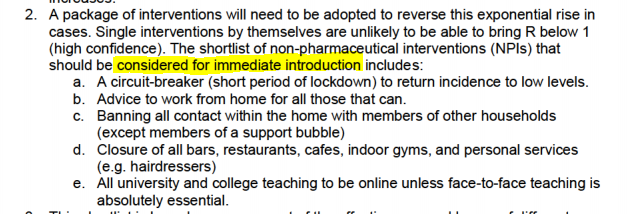
What did Boris Johnson do? Ignore its own experts’ advice. Under pressure from the Brexiteer right-wing of the Tory party and capitalists that opposed any further lockdown, he prevaricated. It took his government over six weeks to take the measures that SAGE considered urgent in September. So it was not until 4 November that a limited-time national lockdown started. On 21 September there were 32 deaths and 368 hospital admissions, by 4 November, the figures were 300 deaths and over 1,500 hospital admissions.
The story is the same everywhere: in France, Spain, Italy, Greece. Most European governments delayed the response to the second wave, started with partial and clearly inefficient measures (such as the early closure of bars and restaurants), and very mild regional measures, etc. The results are there for everyone to see.
Faced with this level of incompetence, mixed messages, contradictory measures, it’s no surprise that there is a high degree of scepticism amongst the population towards government guidelines. Some are even questioning the efficacy of lockdowns, saying things like: “regional measures have not worked”, “we already had a lockdown in the Spring and the virus is spreading again,” “we might just have to learn to live with it”. In reality, it is not lockdowns in themselves that have failed, but the haphazard way in which they have been implemented and communicated, with governments often blaming the public for not following the rules rather than accepting any failings on their part. Asking people to stay home, while workers in industry and manufacturing have to go to work, is not really a lockdown in any case. This has all undermined peoples’ confidence.
Added to this is the question of who pays. Bars, restaurants, cultural institutions, hairdressers, gyms and all sorts of small businesses are being told to close down, driving them into bankruptcy, leaving workers’ without wages and in many cases without jobs. This time, governments are not intervening with financial help as much as during the first lockdowns in the Spring, or only doing it reluctantly and late. The reason is clear. Government funding during the first wave has led to a massive increase in public debt and budget deficits. A report by VoxEU calculates that “the increase in the average debt ratio in the euro area is estimated to be over 15 percent, bringing it over 100 percent. It will climb by about 20 percent in France and about 30 percent in Italy and Spain.”
This has been compounded in many countries by conflicts between central and regional administrations over the imposition of measures to fight the pandemic, which have made their implementation even more shambolic.
Protests and unrest
As a result, in many countries we have seen protests, of different kinds, and attempts by far-right and right-wing demagogic organisations to capitalise on them. These protests go from the conspiracy theory fringe, linked to far-right organisations, to genuine protests of small business owners and workers in affected sectors demanding economic help. The fact that some of those affected by the measures are petty-bourgeois small business owners of bars, restaurants, hairdressing salons, etc. makes this a fertile ground for right-wing demagogues. It is not by chance that, in Britain, the reactionary demagogue Nigel Farage is rebranding his Brexit Party into the anti-lockdown Reform UK Party. But it would be a mistake to paint all protests with the same brush.
We saw in Madrid protests in the working-class neighbourhoods in the south of the capital against the right-wing regional government implementing completely ineffective confinement, while at the same time cutting resources from the public health service. In Italy, workers and small business owners came out in several cities with a clear slogan: “you shut us down, you pay us”. And in Britain, there was resistance in the north of England to accepting regional measures without the necessary government financial support, expressed in a clash between Manchester’s mayor and Boris Johnson.
How to fight COVID-19 from the point of view of the working class
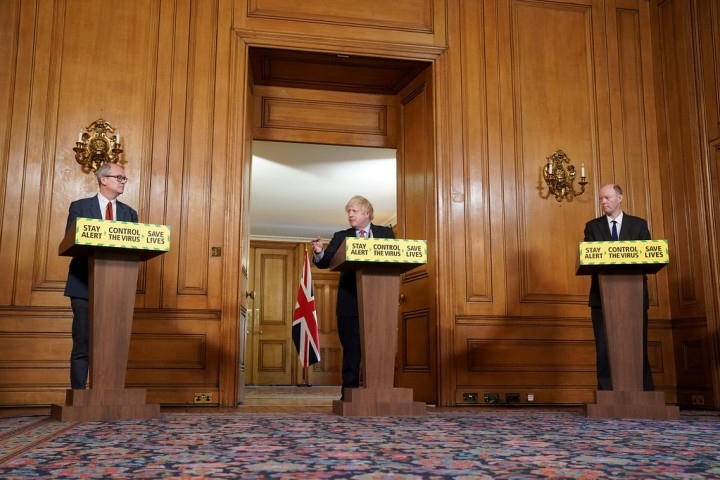 So, what should be the position of revolutionary socialists on the question of how to fight COVID-19 and deal with the second wave in Europe? First of all, we need to explain that this is not the inevitable result of the evolution of the pandemic, something we have no control over. The second wave could have been avoided, or at least its impact greatly minimised if the necessary measures to protect public health would have been taken. And they were not taken because of the need to preserve capitalist profits.
So, what should be the position of revolutionary socialists on the question of how to fight COVID-19 and deal with the second wave in Europe? First of all, we need to explain that this is not the inevitable result of the evolution of the pandemic, something we have no control over. The second wave could have been avoided, or at least its impact greatly minimised if the necessary measures to protect public health would have been taken. And they were not taken because of the need to preserve capitalist profits.
We need to look at best practice around the world, at what has worked and what hasn’t. There has been a lot of debate in the media over the Summer about the so-called “Swedish model”. Anders Tegnell, the state epidemiologist who designed the country’s response, argued in May that his approach meant that 40 percent of people in Stockholm would be immune to COVID-19 by the end of May, giving the country an advantage: “In the autumn there will be a second wave. Sweden will have a high level of immunity and the number of cases will probably be quite low,” unlike in other countries that had opted for lockdowns.
Well, now the autumn has arrived and in Sweden the number of COVID-19 hospitalisations is growing faster than in any other European country, doubling every eight days. So, Sweden had a higher rate of deaths per head of population than its Nordic neighbours in the first wave and that has not prevented a second wave.
In fact, the so-called “herd immunity” approach has been disproven in practice. Recently The Economist was hailing data from the north of Italy that seemed to show that, in the municipalities worst-affected by the first wave, the spread of the second wave seemed to be slower, perhaps pointing to a degree of population-level immunity. These are places where around 24 percent of the population have immunity. Despite The Economist’s enthusiasm for these figures, they do not necessarily show what they want to infer, and they do not constitute a recipe for a policy to be implemented. First of all, the reason why the pandemic is spreading at a slower rate in municipalities hardest hit in the first wave could also be because the people there, who saw relatives, friends and neighbours die in large numbers, are more careful to maintain a higher degree of social distancing. Secondly, what policy conclusions can you draw from Bergamo? That you allow people to get infected, die in large numbers so that a subsequent wave of the virus spreads at a slower rate? This is madness.
There might be legitimate debates to be had from an epidemiological and public health point of view about the best course of action, but in reality the majority of governments and politicians advocating strategies based on the idea of “herd immunity” do so from the point of view of defending capitalist profits, regardless of consequences for peoples’ lives. Incidentally, some of the governments that took harsh measures early on to clamp down and control the pandemic also did so motivated by capitalist profits. They calculated that, if they were able to contain the pandemic early on, they would have a competitive advantage over other countries in being able to restart the economy earlier. This is the argument of the IMF, which in its World Economic Outlook report last month advocated more rapid and more forceful measures to contain the pandemic.
Countries like China, New Zealand, Taiwan, South Korea, to different degrees, took measures like mass lockdowns, widespread testing and a very efficient test and track system. In October, the Chinese city of Qingdao detected 12 COVID-19 cases linked to a hospital dealing with people arriving from abroad. They decided to test the whole of the city’s population, 9 million, in the space of five days. South Korea has a very efficient test and trace system. These countries have also established strict controls of people coming in, with testing of all arrivals and quarantines of all those who test positive in specially designated hospitals or hotels. Mass testing has now also been used effectively in Slovakia, where the entire adult population has been tested over two separate weekends. These are the kind of measures that must be implemented in order to prevent the pandemic from spreading.
Of course, China is a capitalist country and one ruled by an authoritarian regime. One of the reasons it has taken swift and effective action (after an initial attempt to cover up the pandemic) is that the ruling party’s continued stay in power depends to a great extent on being seen as efficient and being able to guarantee economic growth and the health of the citizens. Another side of this is the fact that the higher degree of state intervention in the economy in China (partly as a result the planned economy in the past) allows it to mobilise resources more effectively.
It is a comment on the sorry state of capitalism in the UK and in Europe in general that measures of this kind have not been taken, or criminally delayed. During World War Two, a period of national emergency, the ruling class in both the UK and the US took measures of state intervention in the economy and directed production towards the war effort, with little regard for private property rights. At the end of the day, in times of crisis, the limits of the anarchy of the “free market” system are starkly revealed for all to see.
So, the programme that revolutionary socialists must defend is clear:
- The building of a responsive and well-funded state-run test and track system. Putting measures in place that allow people to isolate if they test positive, which means paying full wages but also providing proper accommodation in cases where overcrowded housing conditions would not allow them to isolate at home. This can be done by requisitioning empty hotels, houses and flats.
- If the pandemic is out of control with widespread community transmission, lockdowns will be necessary. These have to be real lockdowns. Only workers in those sectors of the economy that are essential for the maintenance of life and health should be working. The rest should stay home with full pay. Manufacturing and construction should be shut down, unless linked to essential sectors of the economy. Those sectors that remain open should be under the supervision of worker health-and-safety committees elected from the shop-floor with powers to reorganise production and stop it when deemed unsafe. There is no reason for people to be locked indoors at home, but mixing of different households should be limited to the minimum.
- Small businesses that are forced to close down should be given rent and tax holidays and financial help. Big companies should not receive any help, rather they should rely on their accumulated profits, dividends, etc. Any large-scale companies that require state help should be nationalised without compensation.
- Mass testing should be carried out to identify outbreaks.
- If schools and universities are to remain open, this should be on the basis of reduced class sizes, through the mass hiring of new teachers and the requisition of appropriate buildings. There must be mass testing of education workers. When there is an outbreak in a school, all children and staff in the bubble, as well as their families, should be tested within 24 hours.
- There must be a ban on household evictions and repossessions, along with rent and bills payment holidays. Make the big energy giants and landlords pay.
- We demand a mass programme of investment in the public health service.
Furthermore, as a vaccine seems to be closer on the horizon, it is imperative that this does not become yet another opportunity for capitalist to profiteer. Big pharma should be expropriated without compensation and brought under democratic workers’ control on the basis of the general needs of the population. This cannot be left in the hands of private companies operating on the basis of their profits and the interests of their shareholders. After all, much of the research they base their products on is carried out in state-funded institutions already. Vaccines should be distributed on the basis of need, not the ability to pay. The nationalisation of pharmaceutical companies would also guarantee access to the vaccine across the world, rather than a mad scramble to obtain dosis in which advanced capitalist countries would have an advantage.
A programme like this would not only bring the pandemic under control and work towards zero COVID, but also reassure people that what is being done is effective and that measures are put in place to protect not only peoples’ lives but also their livelihoods. Such a programme would also be able to win over petty-bourgeois layers to the side of the working class.
Of course, such a programme would immediately raise the question of who is to pay? Well, it is simple. We say, make the capitalists pay. A report by Swiss bank UBS revealed that the world’s billionaires have increased their already massive fortunes to a record high of $10.2tn (£7.8tn) in July 2020. The report points out that this is “a new high, surpassing the previous peak of $8.9tn reached at the end of 2017”. Among the billionaires, healthcare billionaires’ total wealth increased by 50.3 percent to USD 658.6 billion.
It is not that there is no money to take the measures necessary to fight the pandemic. The issue is that wealth is concentrated in ever-fewer hands at the top, while the majority, the working class which has created all of that wealth, are left to fend for ourselves. If the largest 250 companies in each country were brought under common ownership and workers’ control, we could pay not only for the fight against COVID-19, but also for decent jobs, houses and livelihoods for the whole of the population.
To fight the virus, abolish capitalism!

